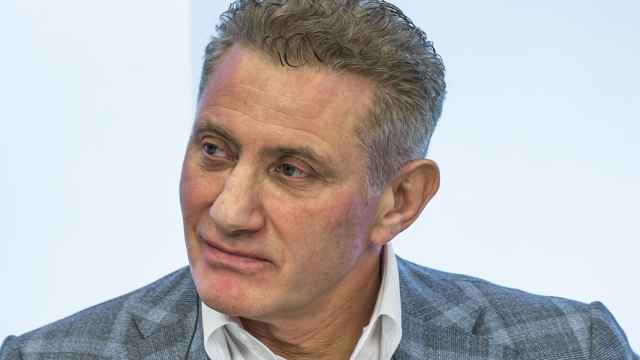Finance Minister Alexei Kudrin said Monday that he would prefer the Central Bank to focus on taming inflation rather than weakening the ruble.
Prime Minister Vladimir Putin last week ordered the country's fiscal authorities, including the Economic Development Ministry, to discuss the option of preventing a stronger ruble, which would mean a deviation from the Central Bank's recent policy of leaving the national currency only loosely regulated.
Putin issued the order at a government meeting with senior members of the big business lobby, the Russian Union of Industrialists and Entrepreneurs, who complained that a strong ruble hurt revenues from exports.
Speaking at a joint meeting of the Finance and Economic Development ministries at the White House, Kudrin said — as Putin looked on — that a lower inflation rate means more accessible loans for businesses and therefore healthier economic growth.
Central Bank Chairman Sergei Ignatyev left the session without commenting.
Economic Development Minister Elvira Nabiullina didn't address the matter directly, but said the economy needs to expand more than the 4.2 percent forecast for this year under the assumption that a barrel of Russian crude sells for $105. Her ministry expects next year's economic growth to come in at 3.5 percent with oil at $93 per barrel.
The ruble appreciated an impressive 10 percent in the first quarter, the ministry said Monday. The Central Bank set Tuesday's exchange rate at 27.99 rubles per dollar.
Kremlin economic aide Arkady Dvorkovich said Monday that he viewed the current rate as acceptable.
Despite a seeming lack of high-level concern about the strengthening national currency, the federal budget, heavily dependent on duties and taxes from export revenues, is getting fewer rubles to support its massive pre-election spending — which could signal an eventual compromise with the exporters.
A Message from The Moscow Times:
Dear readers,
We are facing unprecedented challenges. Russia's Prosecutor General's Office has designated The Moscow Times as an "undesirable" organization, criminalizing our work and putting our staff at risk of prosecution. This follows our earlier unjust labeling as a "foreign agent."
These actions are direct attempts to silence independent journalism in Russia. The authorities claim our work "discredits the decisions of the Russian leadership." We see things differently: we strive to provide accurate, unbiased reporting on Russia.
We, the journalists of The Moscow Times, refuse to be silenced. But to continue our work, we need your help.
Your support, no matter how small, makes a world of difference. If you can, please support us monthly starting from just $2. It's quick to set up, and every contribution makes a significant impact.
By supporting The Moscow Times, you're defending open, independent journalism in the face of repression. Thank you for standing with us.
Remind me later.





